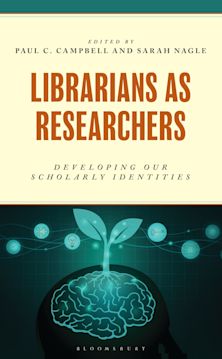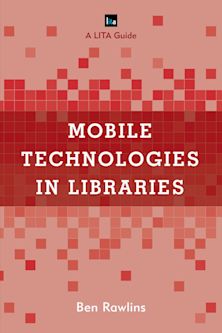- Home
- ACADEMIC
- Library & Information Science
- Research Methods
- Teaching Plagiarism Prevention to College Students
Teaching Plagiarism Prevention to College Students
An Ethics-Based Approach
Teaching Plagiarism Prevention to College Students
An Ethics-Based Approach
This product is usually dispatched within 3 days
- Delivery and returns info
-
Free US delivery on orders $35 or over
You must sign in to add this item to your wishlist. Please sign in or create an account
Description
Teaching Plagiarism Prevention to College Students: An Ethics-Based Approach provides an innovative approach to plagiarism instruction by grounding it in ethics theory. By providing an ethics foundation to plagiarism instruction, this book helps the plagiarism instructor to address both unintentional and intentional plagiarism behaviors among students. This book provides tools to address why plagiarism is an important ethical issue in an academic environment.
This book introduces general principles of ethics adaptable to library instruction of plagiarism in a variety of learning settings. It guides an instructor through curriculum pedagogical design drawing on library and ethics training literatures. It provides examples of materials to support the implementation of an ethical approach to plagiarism instruction. Finally, it outlines a detailed approach to assessment in order to measure changes in student reactions, learning, and behaviors as a result of this instruction. It further provides guidance in how to communicate institutional outcomes to key decision-makers.
Table of Contents
List of Tables
Acknowledgments
Preface
Part 1 Plagiarism: An Ethical Issue
1 Plagiarism Prevention Instruction: Where Did We Come from? Where Are We Going?
2Thinking Through the Ethics of Plagiarism: A Crash Course
Part II Introducing Plagiarism and Ethics Awareness Training (PEAT)
3 Getting Started: Choosing Your Teaching Strategy for PEAT
4 Designing Your Content: The Curricular Building Blocks of PEAT
Appendix A
5 Putting it into Action: Implementing PEAT in the Classroom
Part III Assessing the Effectiveness of Your PEAT Program
6 Did They Like it? Did They learn? Assessing Student Reactions and Knowledge
7 Did Training Make a Difference? Assessing Student Behaviors and Organizational Outcomes
8 Sharing the News: Communicating Your Training Results
9 Where do we from here?: A holistic model for plagiarism prevention
About the Authors
Index
Product details
| Published | Aug 31 2016 |
|---|---|
| Format | Paperback |
| Edition | 1st |
| Extent | 158 |
| ISBN | 9781442264410 |
| Imprint | Rowman & Littlefield Publishers |
| Illustrations | 10 tables; 4 textboxes |
| Dimensions | 9 x 6 inches |
| Publisher | Bloomsbury Publishing |
About the contributors
Reviews
-
The authors of this detailed and well-written volume on preventing plagiarism…have some very decided ideas on how to prevent or discourage the practice…. [Students will] acquire a rich understanding of what plagiarism entails, what it involves ethically, and how and by what means it can be avoided.
Journal of Academic Librarianship
-
This book makes a valuable and timely contribution to the field of education in general, and library science in particular. It adds to the body of knowledge on intentional plagiarism. The book is intended primarily for public service academic librarians who are responsible for designing information literacy curricula. This book should be added to the library science professional collection.
Public Services Quarterly
-
Strittmatter and Bratton present a compelling ethics based model for delivering plagiarism prevention instruction to address the scourge of intentional plagiarism. Their detailed discussion of their Plagiarism and Ethics Awareness Training (PEAT) preventionprogram and strategies for assessing plagiarism prevention efforts will be of great interest to those searching for ways to change students’ attitudes and misunderstandings about plagiarism, academic dishonesty and the unethical usage of information. This book is a valuable addition to the existing plagiarism prevention literature and an essential read for academic librarians looking to foster a culture of academic integrity through library instructional efforts.
Lynn D. Lampert, Coordinator of Information Literacy & Instruction at California State University Northridge and Author of Combating Student Plagiarism: An Academic Librarian's Guide


































